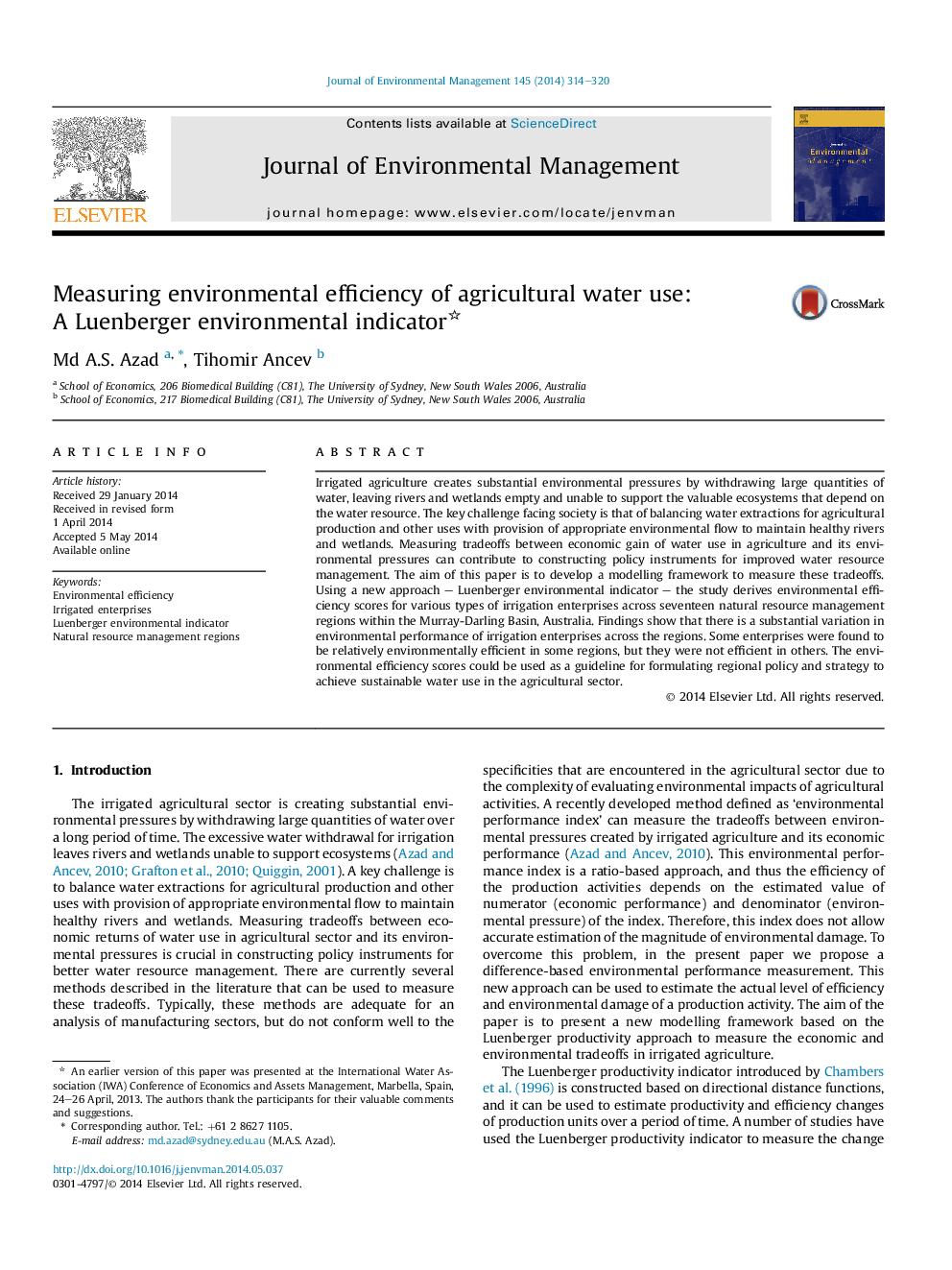| Article ID | Journal | Published Year | Pages | File Type |
|---|---|---|---|---|
| 7483526 | Journal of Environmental Management | 2014 | 7 Pages |
Abstract
Irrigated agriculture creates substantial environmental pressures by withdrawing large quantities of water, leaving rivers and wetlands empty and unable to support the valuable ecosystems that depend on the water resource. The key challenge facing society is that of balancing water extractions for agricultural production and other uses with provision of appropriate environmental flow to maintain healthy rivers and wetlands. Measuring tradeoffs between economic gain of water use in agriculture and its environmental pressures can contribute to constructing policy instruments for improved water resource management. The aim of this paper is to develop a modelling framework to measure these tradeoffs. Using a new approach - Luenberger environmental indicator - the study derives environmental efficiency scores for various types of irrigation enterprises across seventeen natural resource management regions within the Murray-Darling Basin, Australia. Findings show that there is a substantial variation in environmental performance of irrigation enterprises across the regions. Some enterprises were found to be relatively environmentally efficient in some regions, but they were not efficient in others. The environmental efficiency scores could be used as a guideline for formulating regional policy and strategy to achieve sustainable water use in the agricultural sector.
Keywords
Related Topics
Physical Sciences and Engineering
Energy
Renewable Energy, Sustainability and the Environment
Authors
Md A.S. Azad, Tihomir Ancev,
